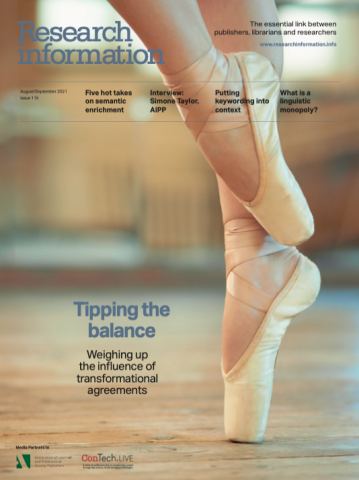Trekking into the semantic frontier
Jonathan Bresman explains why the Starship Enterprise and Jurassic Park needed semantic search

Jonathan Bresman explains why the Starship Enterprise and Jurassic Park needed semantic search
Neil Blair Christensen discusses the evolution of enriched scholarly research
Anna Clarkson, editorial director for education and behavioural sciences at Taylor & Francis, details a reconstruction of the publishing process
The repository has become an increasingly important part of an institution’s infrastructure, writes Harriet Clark
Jennifer Schivas re-examines semantic enrichment’s strategic importance
Many say open access funding agreements will tip the balance of publishing output. But not everyone, reports Rebecca Pool
Research institutions and funders need to be more aware of the phenomenon, writes Amer Abukhalaf
The need for fast, accurate and enriched data has never been more pressing, writes Manisha Bolina
A national infrastructure for research data is necessary to effectively apply AI and machine learning, writes Nathan Cunningham
Publishers’ power in the research ecosystem must be tackled on a sector-wide basis, writes Silke Machold
